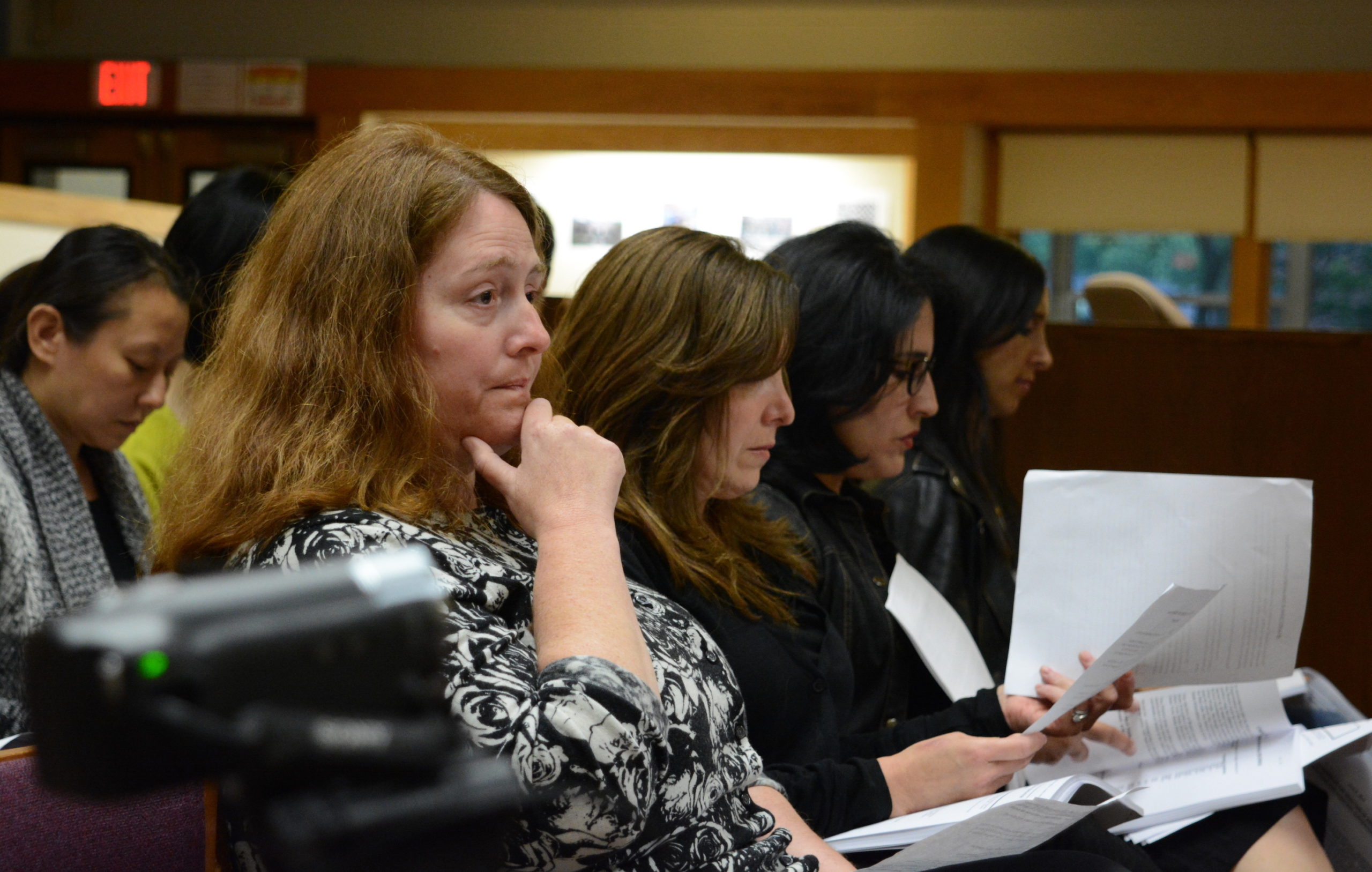When the Great Neck Board of Education announced plans to form a Building Advisory Committee and continue two other advisory groups, it hoped to earn more trust and involve more parents.
But at a school board meeting on Monday, some people raised concern that selecting members by lottery for one-year terms may erode the effectiveness of the advisory boards, including 12-term Trustee Donald Ashkenase, who began the discussion.
“I have a different opinion in that we benefit from some degree of continuity and I think that taking the approach we are by replacing everybody who was on the committee last year with new people loses some of the value of the process we have,” he said.
Many parent leaders, who attended to deliver reports on their committees within the United Parent Teacher Council, agreed with Ashkenase. They expressed concern that a lack of continuity and experience could compromise the committees’ perspective and effectiveness, thus defeating the purpose of properly advising the school board.
Additionally, some said that with one-year terms and drawing by lottery, there may not be enough incentive to get dedicated experts to apply for a committee.
In addition to the Building Advisory Committee, the panels are the Citizens Advisory Committee and the Financial Advisory Committee.
The trustees reiterated one of the central points of the committees: getting more parents involved.
“One of the functions that I saw was that we want to hear from them the questions they have so we know the points we’re not communicating properly,” said Trustee Lawrence Gross, referring to his time on the financial committee. “Like anything else, you know what you know.”
Trustee Donna Peirez also said that if membership in these committees was not done by lottery, accusations of partiality could return, defeating one of the key purposes of the advisory committees: gaining community trust.
However, with each concern, attendees offered various potential solutions.
One woman suggested 15-month terms, allowing for a three-month transition period. Another said having an at-large member serving as a veteran privy to board workings and current issues could also help. Some also recommended having longer terms where half the board would be up for lottery each year, effectively leading to a balance of experience and new involvement.
The Citizens Advisory Committee, Financial Advisory Committee and Building Advisory Committee were described by board members as “experimental,” but also an important way to get other members of the community involved with school affairs.
And Barbara Berkowitz, president of the Board of Education, said that interest is particularly high this year.
“We have already received well in excess of 50 people applying for the committee positions,” Berkowitz said.
The Building Advisory Committee in particular comes after of an initial rejection of a bond issue for building repairs and upgrades, as well as concerns among some residents about whether the money would be spent properly.
Voters initially rejected an $85.9 million bond 1,677 to 1,564 in February. A wave of parental activism ensured passage of a revised $68.3 million bond by 6,299 to 1,925 in May.
Each committee will have representatives from the high school, community members without children, parents with children attending and staff members. There will be up to 12 members appointed by the Board of Education, in addition to board members and administrators.
There will also be a member-at-large for each committee. Members serve one-year terms.
Gross also noted that having administrators and a board member involved, in a nonvoting capacity, may give a degree of continuity.
Ultimately, board members said they need to take time to consider the public’s input and ideas before coming to a final decision on any changes. Both sides expressed interest in a compromise.
While June 12 is the deadline for applications, the committees will not be finalized until the next school year.
The school district asks that anyone interested in serving on the Building Advisory Committee, Citizens Advisory Committee or Financial Advisory Committee email their name, contact email, phone number, which category one’s applying under and committee preference to Agnes Buckley at abuckley@greatneck.k12.ny.us.



